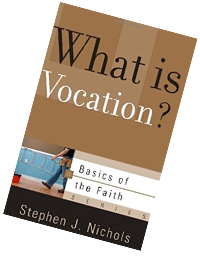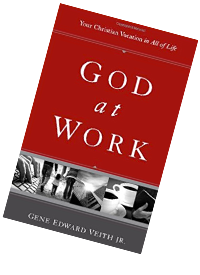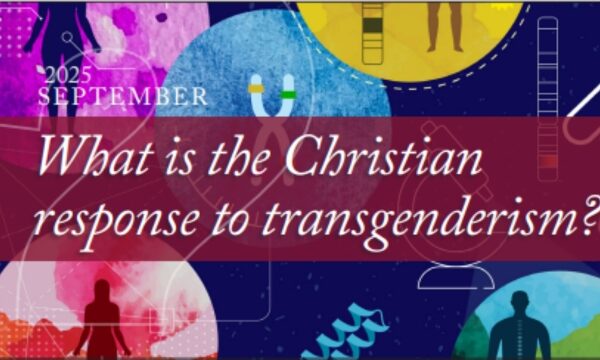Back to series
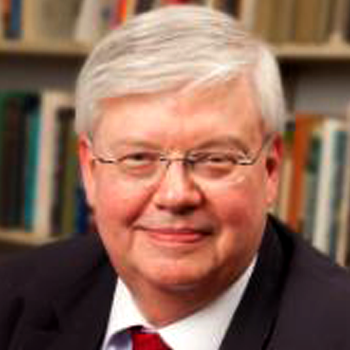

Recommended Reading:
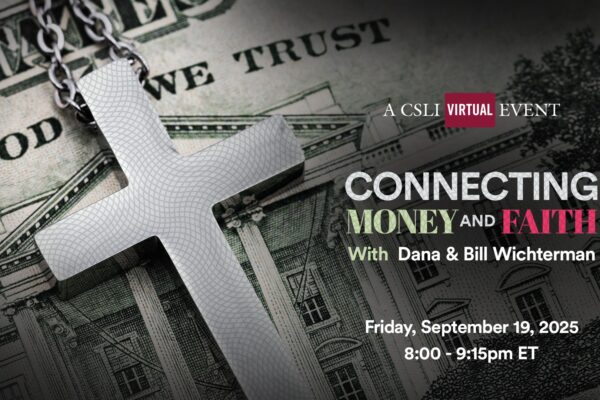
The Importance of Vocation
Click here to open a Print - Friendly PDF
[This article is the first in a two-part series that addresses vocation and calling. The series is based on a talk Mark Talbot gave to the Fellows of the C.S. Lewis Institute-Chicago on March 3, 2018. It is adapted from a book by Dr. Talbot, When the Stars Disappear: Understanding and Coping with Our Suffering (Crossway).]
It is noteworthy – although not unexpected, given the word’s etymology – that the first several senses for vocation in the online Merriam-Webster Unabridged Dictionary all refer explicitly to God or His purposes. Here is the very first one:
1 a : a summons from God to an individual or group to undertake the obligations and perform the duties of a particular task or function in life : a divine call to a place of service to others in accordance with the divine plan.
This sense doesn’t restrict the concept to religious vocations, although it is immediately qualified in a way that does:
specifically : a divine call to a religious career (as the priesthood or monastic life) as shown by one’s fitness, natural inclinations, and often a conviction of divine summons.
Avoiding the restriction of vocation to explicitly Christian or religious careers is the main point Jerram Barr makes in the article you read, “Work: A Holy Calling.” It opens like this:
Whatever job you do, it is a holy calling, a sacred calling, a responsibility given to you by God to serve Him there. Too often we think of our work, if we are not working specifically for the church, as being secular, second-class, having nothing to do with true spirituality, and little to do with being a faithful Christian. You can think of all the incorrect expressions we use to mark this division between the sacred and the secular: We speak of people who are in “full-time ministry” as if only they are “full-time Christians.”1
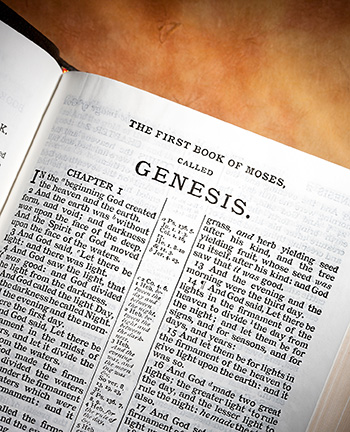 The second and third definitions in Merriam-Webster make the connotations of vocation clearer:
The second and third definitions in Merriam-Webster make the connotations of vocation clearer:
2 a (1) : a task or function to which one is called by God;
2 a (2) : the responsibility of an individual or group to serve the divine purposes in every condition, work, or relationship of life : one’s obligations and responsibilities (as to others) under God.
The second of these two senses of vocation has two helpful quotations of its use attached to it:
<vocation involves the total orientation of a man’s life and work in terms of his ultimate sense of mission – R. F. West2>
<domination of physical nature is part of the vocation of man>
I’ll comment on this claim about domination – or, better, dominion – later. Then we get yet another sense:
3 archaic : the position in life in which God has placed a person : estate, station.3
The first two chapters of Genesis explain the estate or station in which God has placed every human being. When we look up the word calling, the second, third, and fourth senses are relevant to this morning’s discussion:
2 : a strong inner impulse toward a particular course of action or duty
specifically : such an impulse accompanied by conviction of divine influence3 obsolete : station or position in life : rank.
Here the apostle Paul’s use is quoted:
<let every man abide in the same calling wherein he was called – 1 Corinthians 7:20 (Authorized Version)>
And then we get the fourth sense:
4 : the activity in which one customarily engages as a vocation or profession.4
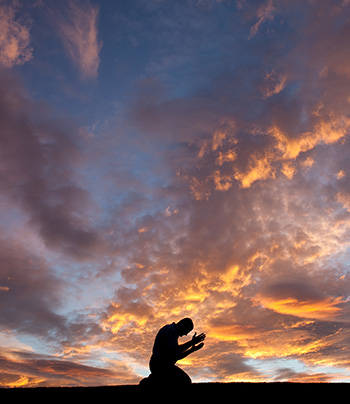 I will use vocation in Merriam-Webster’s 2 a (2) sense: “the responsibility of an individual or group to serve the divine purposes in every condition, work, or relationship of life : one’s obligations and responsibilities (as to others) under God” (my emphases) and calling in all three of the quoted senses. The first of them – “a strong inner impulse toward a particular course of action or duty … specifically: such an impulse accompanied by conviction of divine influence” – seems to capture what Nehemiah felt as recorded in the book of Nehemiah. The third – one’s “station or position in life: rank” and fourth – “the activity in which one customarily engages as a vocation or profession” – are both part of Paul’s use of calling in 1 Corinthians.
I will use vocation in Merriam-Webster’s 2 a (2) sense: “the responsibility of an individual or group to serve the divine purposes in every condition, work, or relationship of life : one’s obligations and responsibilities (as to others) under God” (my emphases) and calling in all three of the quoted senses. The first of them – “a strong inner impulse toward a particular course of action or duty … specifically: such an impulse accompanied by conviction of divine influence” – seems to capture what Nehemiah felt as recorded in the book of Nehemiah. The third – one’s “station or position in life: rank” and fourth – “the activity in which one customarily engages as a vocation or profession” – are both part of Paul’s use of calling in 1 Corinthians.
I am going to concentrate on the biblical view of vocation because the biblical view of calling falls out of it. The callings are subordinate to the vocation we all have simply by creation.
Our Divine Vocation
The word vocation obviously has more than a whiff of the religious to it, but insofar as the whiff suggests “a divine call to a [specifically] religious career” – that is, to something like full-time Christian ministry, as that phrase is usually meant – it steers us the wrong way.
What Were We Made For?
We can see this by examining the first of the Scripture passages that you were asked to meditate on for this session: Genesis 1:26-28. Here is one translation of it:
Then God said, “Let us make man in our image, after our likeness. And let them have dominion over the fish of the sea and over the birds of the heavens and over the livestock and over all the earth and over every creeping thing that creeps on the earth.”
So God created man in his own image,
in the image of God he created him;
male and female he created them.And God blessed them. And God said to them, “Be fruitful and multiply and fill the earth and subdue it, and have dominion over the fish of the sea and over the birds of the heavens and over every living thing that moves on the earth.”
This is the English Standard Version. The New Living Translation reads similarly concerning the point I’m about to make. I want you to see that serious Bible students need to be reading more than one translation for, as the old saw goes, Every translator is a traitor.5 Translation always requires choices and sometimes those choices leave out some important nuance of the original text. In fact, serious Bible students need to be reading the best commentaries on Scripture because otherwise they will inevitably miss important details in God’s Word. To see what the ESV has missed here, listen to the 2011 NIV translation of verse 26. Can you spot what it brings out that the ESV does not?
Then God said, “Let us make mankind in our image, in our likeness, so that they may rule over the fish in the sea and the birds in the sky, over the livestock and all the wild animals, and over all the creatures that move along the ground.”
 This clarifies why God made humankind. How does it do so? By rendering an important nuance of Hebrew grammar with the words so that.6 Those words tell us that when God declared He would make humankind, He specified their task: “Let us make mankind in our image, in our likeness, so that they may rule over the fish in the sea and the birds in the sky, over the livestock and all the wild animals, and over all the creatures that move along the ground.” In other words, we were created to do the work of ruling. This is the human vocation, the universal human vocation, the vocation of each and every human being – that is, “the responsibility of an individual or group” – more explicitly, of every individual and group – “to serve the divine purposes in every condition, work, or relationship of life : one’s obligations and responsibilities (as to others) under God.”
This clarifies why God made humankind. How does it do so? By rendering an important nuance of Hebrew grammar with the words so that.6 Those words tell us that when God declared He would make humankind, He specified their task: “Let us make mankind in our image, in our likeness, so that they may rule over the fish in the sea and the birds in the sky, over the livestock and all the wild animals, and over all the creatures that move along the ground.” In other words, we were created to do the work of ruling. This is the human vocation, the universal human vocation, the vocation of each and every human being – that is, “the responsibility of an individual or group” – more explicitly, of every individual and group – “to serve the divine purposes in every condition, work, or relationship of life : one’s obligations and responsibilities (as to others) under God.”
Genesis 2:5 reiterates this when it says: “Now no shrub had yet appeared on the earth and no plant had yet sprung up, for the Lord God had not sent rain on the earth and there was no [man] to work the ground” (NIV). This verse’s word for indicates that we are being given the reason why there were not yet any shrubs or plants. It is because “the LORD God had not sent rain on the earth and there was no [man] to work the ground.” The shrubs and plants had not yet appeared because the man, who was to work the ground, was not yet created. Hans Walter Wolff comments that “labour appears as the only definition of man’s proper significance” in this verse.7 Henri Blocher notes that when God made the first man, He “did not cast [him] into the desert or into the jungle, but showed kindness to him by taking care of him and by adding to the gift of being and life an abundance of good things for his happiness.” Yet he adds that when the LORD “bestows gifts on those He wishes to love as His sons, He takes good care not to turn them into spoilt children” by giving them responsibilities. So Eden was “‘no fairyland, no Utopia’; the man [received] a charge to fulfil in that place.” As soon as He made him, God “took the man and put him in the garden of Eden to work it and keep it” (Gen. 2:15).
Work is thus essential to human life. Indeed, a human life without work “could not be a complete life; it would be an existence quite unworthy” of human beings.8 God “put [the] man into a garden,” Claus Westermann remarks; “the garden and the land there [needed] to be worked; the land [was] entrusted to [the] man, who [was] both capable and industrious.” God’s task gave Adam’s life meaning – meaning supplied not by Adam but by God. Human life is not intrinsically meaningful. Its meaning – no matter whether someone acknowledges this or not – comes from God.9 Work “is part of human existence because the living space which [God] has assigned to his people demands [their] work.” And thus “God-given human existence follows a pattern of duty. Human existence cannot have meaning or fulfillment without such obligation.” The world requires our labor to complete it. And so the work of ruling that God assigned to Adam and Eve fundamentally shapes who God has created us to be.
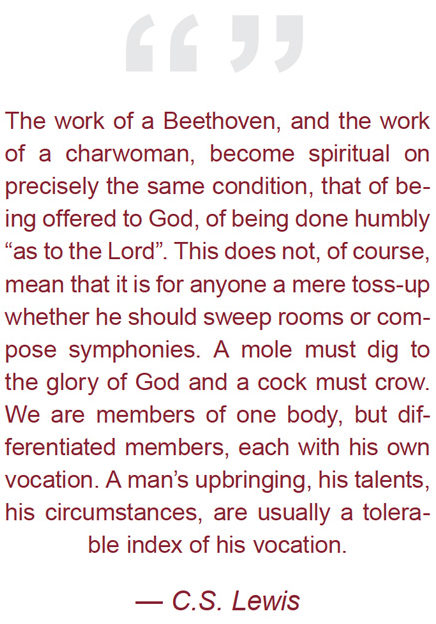 10Even now, after the Fall, work well done gives meaning and brings pleasure (see Eccl. 2:24; 3:13). This is especially true when the work is important – and the work God has assigned to us as His images, as those who find our day-to-day meaning in working as God worked (see Gen. 2:2-3, 15),11 is as important as can be. God named nothing in creation after He named the earth and the seas (see Gen. 1:10), leaving us the task of naming the animals as well as making other crucial classifications and distinctions (see Gen. 2:19-20; 1 Kings 3:16-28). Solomon continued this work (see 1 Kings 4:29-34). There is also the work of building and planting (see Eccl. 2:4-5; Prov. 24:30-34), the work of nurturing and educating (see, e.g., Deut. 6:4-7; Ps. 78:1-8; Prov. 31:26), the work of making and arranging proverbs (see 1 Kings 4:32; Eccl. 12:9), the work of writing and performing music (see Deut. 31:19-22; I Kings 4:32; 2 Chron. 5:13), the work of worshiping and celebrating (see Ps. 100:1; 95:1-2, 6-7; 149:2), works of mercy (Job 29:11-17; Prov. 31:20; Matt. 25:31-46) as well as, in New Testament times, the work of evangelizing (Matt 28:19-20; 2 Tim. 4:1-5) and preaching and teaching (see 1 Tim. 5:17-18). Indeed, there are as many kinds of work as there are tasks to be worked at, including shop keeping, practicing medicine, consulting, working in the money markets, serving food – and even being professors of philosophy!
10Even now, after the Fall, work well done gives meaning and brings pleasure (see Eccl. 2:24; 3:13). This is especially true when the work is important – and the work God has assigned to us as His images, as those who find our day-to-day meaning in working as God worked (see Gen. 2:2-3, 15),11 is as important as can be. God named nothing in creation after He named the earth and the seas (see Gen. 1:10), leaving us the task of naming the animals as well as making other crucial classifications and distinctions (see Gen. 2:19-20; 1 Kings 3:16-28). Solomon continued this work (see 1 Kings 4:29-34). There is also the work of building and planting (see Eccl. 2:4-5; Prov. 24:30-34), the work of nurturing and educating (see, e.g., Deut. 6:4-7; Ps. 78:1-8; Prov. 31:26), the work of making and arranging proverbs (see 1 Kings 4:32; Eccl. 12:9), the work of writing and performing music (see Deut. 31:19-22; I Kings 4:32; 2 Chron. 5:13), the work of worshiping and celebrating (see Ps. 100:1; 95:1-2, 6-7; 149:2), works of mercy (Job 29:11-17; Prov. 31:20; Matt. 25:31-46) as well as, in New Testament times, the work of evangelizing (Matt 28:19-20; 2 Tim. 4:1-5) and preaching and teaching (see 1 Tim. 5:17-18). Indeed, there are as many kinds of work as there are tasks to be worked at, including shop keeping, practicing medicine, consulting, working in the money markets, serving food – and even being professors of philosophy!
12At the end of a day’s work in the garden our first parents were probably weary. As C.S. Lewis observes, very minor aches can actually be pleasant. They only become painful when increased.13 Only spoiled children expect everything to be effortless.
14Now, east of Eden, our work is often unpleasant, sometimes painful, and at times frustrating or futile. Now we must pray that the Lord will look on our work with favor and thus “establish the work of our hands” (Ps. 90:17). This is in fact part of what the LORD’S having cursed the ground in Genesis 3:17-19 is meant to encourage. The travails now accompanying our daily tasks should not dissuade us from fulfilling our God-given vocation. They should keep us mindful of Him.
What Are We Made to Be?
We won’t really understand or be able to embrace our God-given vocation if we don’t understand what He has made us to be. This drives us back to Genesis 1:26. Genesis is the backstory on the rest of the Pentateuch and, indeed, of the whole Bible. You can’t really understand the gospel if you don’t understand Genesis.15 And that means that, unless you understand Genesis, you can’t be what God means you to be.
A thoughtful reading of Genesis 1:1-25 makes it clear that everything God created before us was preparing a place for us. He “formed [the earth] to be inhabited” (Isa. 45:18). From the earth’s formlessness in 1:2, He was fashioning an ordered cosmos where we can fulfill our divine vocation.16
Into this ordered, inhabitable world God prepared to introduce human beings. The progression from plants through the water and winged creatures to the land animals involved creating a hierarchy to which we were now to be added as the highest living beings. As Paul Beauchamp observes, “The living creatures converge towards the man.”17 But creating us involved another difference: For the first time, God paused to announce what He was about to do, making an unusual first-person plural statement: “Let us make man in our image, after our likeness” (Gen. 1:26).18 As Gerhard von Rad has written, “Nothing [in this account] is here by chance; everything must be considered carefully, deliberately, and precisely. … What is said here is intended to hold true entirely and exactly as it stands.”19 Us and our are here for good reason.
They alert us that something momentous was about to happen, something of a different order than all that had happened before. God would make us in His own image and after His own likeness. His “Let us make” emphasized that we are only creatures, while His “in our image, after our likeness” stressed our godlikeness. As His first word concerning human being,20 we must understand ourselves primarily in its terms. As Blocher says, “An image is only an image. It exists only by derivation. It is not the original, nor is it anything without the original. Mankind’s being an image stresses the radical nature of his dependence.”21
Ultimately, we must understand who we are in terms of the relationship that defines us. We will never adequately understand ourselves if we think of ourselves primarily as the most highly developed animal species or if we calibrate our worth against the vastness of the stars. We must think of ourselves primarily as God’s earthly images.
David understood this. In Psalm 8, he glanced up towards the starry heavens and felt “the staggering contrast between a human and the great bodies, processes, and powers in the world and the cosmos,” which, “when noticed, [can bring] with it an overwhelming sense of insignificance and displacement.”22 This led him to ask, “[W]hat are mere mortals that you” – that is, God – “should think about them, human beings that you should care for them?” (Ps. 8:4 NLT). But then with the ears of faith he heard God say He has situated us just a little below Himself and thus crowned us with glory and honor. David cured the vertigo induced by staring at the heavens by acknowledging a truth he could know only by faith (see Heb. 11:3). As one wise commentator has put it, Psalm 8’s main point is that “we can say ‘human being’ only after we have learned to say ‘God.’ … Humankind recognizes itself fully only in the recognition of the Being from whom all reality arises.”
At this point in the Creation story, we are told very little about our nature as images, very little about the ways in which we are godlike. That comes out, as we shall see, in Genesis 2:4-25.
Yet our relation to the rest of creation is already clear. For, as we have seen, immediately after declaring He would make us in His image, God said why He has made us so: “so that they may rule over the fish in the sea and the birds in the sky, over the livestock and all the wild animals, and over all the creatures that move along the ground.” As the sovereign Creator’s images, we are creation’s sovereigns, meant to reign over the rest of creation.
David reiterated this. For right after he declared that God made us only a little lower than Himself, crowning us with glory and honor, he went on to say:
You gave them charge of everything you made,
putting all things under their authority –
the flocks and the herds
and all the wild animals,
the birds in the sky, the fish in the sea,
and everything that swims the ocean currents. (Ps. 8:5-8 NLT)
David glanced downwards after he glanced upwards, surveying the rest of creation and perhaps wondering whether we are just another animal species.23 Yet by hearing God’s word he steadied himself, coming to understand that our being made in God’s image makes us unique.24 He then understood our situation for what it actually is: As God’s images, we stand between Him and the rest of the creation, where, according to this word in Genesis 1:26, we are to fulfill the office of ruling all the rest of it wisely and benevolently.
25Then God did what He had declared He was about to do
So God created man in his own image,
in the image of God he created him;
male and female he created them.(Gen. 1:27)
in the image of God he created him;
male and female he created them.(Gen. 1:27)
 The Hebrew construction for the ESV’s word man in this verse suggests it would be better to translate it as mankind or, even better, humanity, since “clearly,” as Wenham writes, “mankind in general, ‘male and female,’ not an individual, is meant.”26 This emphasizes the third set of relationships we must acknowledge to understand ourselves. We are related in one way to God and in another to the rest of creation, but we are also inevitably and necessarily related in yet a third way to each other, to other human beings. So we exist within three kinds of relationships, each in its own way creating, shaping, and sustaining us: our primary relationship is with God, then there is our relationship to other human beings, and finally our relationship to the rest of creation. Living within the ‘space’ created by these three kinds of relationships constitutes specifically human being.
The Hebrew construction for the ESV’s word man in this verse suggests it would be better to translate it as mankind or, even better, humanity, since “clearly,” as Wenham writes, “mankind in general, ‘male and female,’ not an individual, is meant.”26 This emphasizes the third set of relationships we must acknowledge to understand ourselves. We are related in one way to God and in another to the rest of creation, but we are also inevitably and necessarily related in yet a third way to each other, to other human beings. So we exist within three kinds of relationships, each in its own way creating, shaping, and sustaining us: our primary relationship is with God, then there is our relationship to other human beings, and finally our relationship to the rest of creation. Living within the ‘space’ created by these three kinds of relationships constitutes specifically human being.
27In declaring what He was about to do regarding human beings, God used the word make – `asah in Hebrew – which is also found in verses 7, 16, 25, 31, and in chapter 2, verses 2 and 3 (where it is translated as done in the ESV). Here in verse 27 the Hebrew word for created is bara’, as it is in verses 1, 21, and at 2:4. Since nothing in this account is accidental, the threefold repetition of bara’ in our verse is significant. It confirms how momentous our creation is. Alternating created and image in the first two lines stresses that we must understand ourselves in terms of God. As Blocher said, who we are depends radically on who He is.
God’s image is not limited to a part of us. Everything about us images Him. As Kidner says,
The Bible makes man a unity: acting, thinking and feeling with his whole being. This living creature, then, and not some distillation from him, is an expression or transcription of the eternal, incorporeal creator in terms of temporal, bodily, creaturely existence – as one might attempt a transcription of, say, an epic into a sculpture, or a symphony into a sonnet.28
Understanding ourselves as God’s image, Kinder continues, “excludes the idea that our Maker is the ‘wholly Other’” and “requires us to take all human beings infinitely seriously (cf. Gn. 9:6; Jas. 3:9). And our Lord implies, further, that God’s stamp on us constitutes a declaration of ownership (Mt. 22:20, 21).”
But what does it mean to be made, as it is usually translated, in God’s image? Ordinarily, we take Y is made in the image of X to mean that X has a visible image and Y’s being made in the image of X means that Y is made to copy X’s visible image. Yet Moses reminded the Israelites that when God made covenant with them, they heard Him speak but saw no form: “there was only a voice” (Deut. 4:12; see vv. 9-20). So our being made in God’s image is not primarily a matter of our possessing some visible form but, rather, our imaging the sovereign Creator God in some other way.
In the ancient Near East kings erected images of themselves throughout their realms to assert their sovereignty where they weren’t physically present.29The incorporeal Creator has made us His earthly image so that we may assert His sovereignty, which we do by acting as kings and queens reigning for Him over the rest of the creation.30 In other words, God created us to be His image. He created us as – and not (as most translations have it) in – His earthly image. This is, in fact, how Paul understood our being God’s image when he said that “a man … is the image and glory of God” (1 Cor. 11:7).
Our role as God’s images is a structural feature of our place in creation and thus something we cannot lose, although we can obscure, mar, tarnish, or diminish it.31
How Are We Able to Fulfill Our Vocation?
Genesis 2:5, 7-8, 15 tell us how we became able to fulfill our vocation. “When no bush of the field was yet in the land and no small plant of the field had yet sprung up … then the LORD God formed the man of dust from the ground and breathed into his nostrils the breath of life, and the man became a living creature. And the Lord God planted a garden in Eden, in the east, and there he put the man whom he had formed … to work it and keep it.”
Here we are told that the LORD God breathed into the first human being’s nostrils the breath – the Hebrew word is neshamah – of life, something He didn’t do with any other creature. This made us earthly persons, with capacities that distinguish us from all other living beings. Blocher writes that neshamah “is used rarely for God .… It is used for mankind and not for animals, and designates the spirit of mankind created to correspond to the Spirit of God.”32 In other words, it was by the LORD God breathing this breath into Adam that he became God’s earthly image.
 When we read that the Spirit of the LORD will rest upon the future Messiah, and that this is “the Spirit of wisdom and understanding, the Spirit of counsel and might, the Spirit of knowledge and the fear of the LORD” (Isa. 11:2), we begin to understand what the Lord’s breathing the breath of life into the first man implies. It means God has formed us with the created equivalents of those aspects of Himself that account for His being the Only-Wise Creator, Ruler, and Disposer of all things. So when the LORD filled Bezalel with His Spirit, “with wisdom, with understanding, with knowledge and with all kinds of skills,” he and the others to whom God gave these skills knew “how to carry out all the work of constructing the sanctuary,” enabling them to do it “just as the LORD has commanded” (Exod. 31:3 and 36:1 NIV). He also inspired them to teach others what they knew (see Exod. 35:34). To be made as God’s image, to have Him breathe into us the breath of life, means we possess the supernaturally bestowed gift of personhood that enables us to think, learn, speak, teach, and make free decisions.
When we read that the Spirit of the LORD will rest upon the future Messiah, and that this is “the Spirit of wisdom and understanding, the Spirit of counsel and might, the Spirit of knowledge and the fear of the LORD” (Isa. 11:2), we begin to understand what the Lord’s breathing the breath of life into the first man implies. It means God has formed us with the created equivalents of those aspects of Himself that account for His being the Only-Wise Creator, Ruler, and Disposer of all things. So when the LORD filled Bezalel with His Spirit, “with wisdom, with understanding, with knowledge and with all kinds of skills,” he and the others to whom God gave these skills knew “how to carry out all the work of constructing the sanctuary,” enabling them to do it “just as the LORD has commanded” (Exod. 31:3 and 36:1 NIV). He also inspired them to teach others what they knew (see Exod. 35:34). To be made as God’s image, to have Him breathe into us the breath of life, means we possess the supernaturally bestowed gift of personhood that enables us to think, learn, speak, teach, and make free decisions.
In putting Adam into the garden “to work it and keep it,” God gave him and all of us as his descendants our common human vocation, which is to reign over the rest of the creation, to exercise dominion by being the thinking, planning, and acting part of creation, the part responsible for ordering, preserving, and enhancing all the rest of it. We image Him by acting as creation’s kings and queens who reign for Him over the rest of the creation.33 We are “expected,” Wenham writes, “to imitate God is [our] daily [lives].”34 But “the reign of the created image,” Blocher adds,
could only be that of a deputy. Mankind is a vassal prince who will follow the directives of the Sovereign and will give an account to him.… It is not by brute force that mankind will assure his mastery, precisely because that mastery distinguishes him from the brute beasts. As the imitator of God in the six days of the week, the viceroy of creation will deploy the power of the word and of the spirit.35
Yet we can’t follow our Maker’s directives if we don’t know them. The world and our lives have meaning – everything has a direction and a direction that can be understood, a direction that was implanted in it by God at creation. Yet we cannot discover its meaning on our own, in spite of all of our scientific and technological prowess.
Job 28 detailed the remarkable feats of mining that the ancients achieved. They found gold, silver, copper, iron, and precious stones by digging into places no animal had ever seen, wresting what they prized from the flinty rock. Yet where is wisdom to be found? Job asked, “And where is the place of understanding?” It “is not found in the land of the living,” he answered. “It is hidden from the eyes of all living and concealed from the birds of the air.” Only “God understands the way to it,” only “he knows its place.” For only He “gave to the wind its weight and apportioned the waters by measure.” He alone “made a decree for the rain and a way for the lightning of the thunder.” He alone fully knows the meaning He has implanted in creation. Only the Creator knows what we must learn if we are to act as creation’s kings and queens who are carrying out His intentions for the rest of the creation.
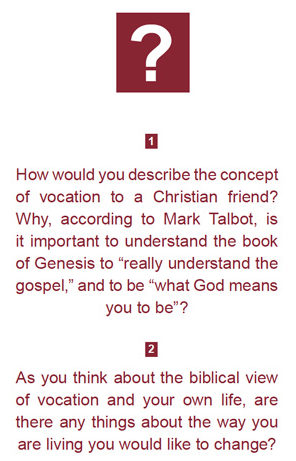 But no one “knows a person’s thoughts except the spirit of that person, which is in him” and “no one comprehends the thoughts of God except the Spirit of God” (1 Cor. 2:11). So God must tell us what He intends for creation. We can fulfill our divine vocation only by hearing the words of the God whose form we do not see. These are the words of Scripture. Scripture is God’s primary way of communicating with fallen human beings. He inspired his prophets and apostles to speak what He was speaking through them (see 2 Pet. 1:20-21; 2 Tim. 3:16). To know the words of Scripture – to have them resound through every aspect of our lives, to have them shape all that we are and do – is biblical wisdom and understanding. We are to seek this, Scripture declares, above all else: “The beginning of wisdom is this: Get wisdom. Though it cost all you have, get understanding” (Prov. 4:7 NIV).
But no one “knows a person’s thoughts except the spirit of that person, which is in him” and “no one comprehends the thoughts of God except the Spirit of God” (1 Cor. 2:11). So God must tell us what He intends for creation. We can fulfill our divine vocation only by hearing the words of the God whose form we do not see. These are the words of Scripture. Scripture is God’s primary way of communicating with fallen human beings. He inspired his prophets and apostles to speak what He was speaking through them (see 2 Pet. 1:20-21; 2 Tim. 3:16). To know the words of Scripture – to have them resound through every aspect of our lives, to have them shape all that we are and do – is biblical wisdom and understanding. We are to seek this, Scripture declares, above all else: “The beginning of wisdom is this: Get wisdom. Though it cost all you have, get understanding” (Prov. 4:7 NIV).
And so we arrive at the point I most want you to take home today: In order to fulfill our God-given vocation, we must – we all must – become better students of God’s word and of all of His word, hearing and obeying His voice as it resounds through them day after day.36, 37
[Adapted from upcoming title, When the Stars Disappear: Understanding and Coping with our Suffering by Mark Talbot. Used by permission of Crossway, a publishing ministry of Good News Publishers, Wheaton, IL 60187, www.crossway.org.]
To read Part 2 of this article on The Importance of Calling, please click here.
|
Notes: To make it all the clearer that for all his searchings' and investigations man cannot dis-cover wisdom itself, ‘the meaning implanted in creation’. ‘Only God understands the way to it’ (v. 23). Thus belief in creation secures the factual nature of man’s worldly rule, which … leads clearly to the fear of God (Job 28.28). Psalm 8 celebrates man’s destiny to rule over extra-human creation in a quite different way. It leads to the final, decisive and all-embracing recognition by emphasizing that the crowning of man to be steward over the world is (in view of his minuteness in relation to the universe and his pitiable need of providing care) anything but a matter of course, and certainly does not have its ground in man himself (vv. 3f.). (227; my emphases)
10 As Wolff notes: Immediately after man’s creation and the planting of the paradisal garden, Yahweh leads him into that garden, so that he may cultivate it and protect it. When at this point the [text] mentions both the serving of the earth through labour … and the protective watching over it … , [it is indicating] the two aspects of all man’s activity in his various callings. The context of the passage brings out the divine working and giving as the premise of all human activity; when the gifts of creation are made over to man, the care and protection of these gifts is also given him as the task of his life – a task that he and the soon-to-be created woman would find very rewarding (Wolff, 128-29).
11 Although the work of creation is finished, God has continued working for His people (see, e.g., Exod. 14:13-14; 34:10; Deut. 11:7; Josh. 24.31), and we, like our Lord, are to work as God works (see John 4:34; 5:17, 36; 17:4). the evil of pain depends on degree, and pains below a certain level of intensity are not feared or resented at all. No one minds the process ‘warm — beautifully hot — too hot — it stings’ which warns him to withdraw his hand from exposure to the fire: and, if I may trust my own feeling, a slight aching in the legs as we climb into bed after a good day’s walking is, in fact, pleasurable. (The Problem of Pain [San Francisco: HarperCollins, 2001], 23; my emphasis)
Something similar is true with intellectual work. Mental weariness at the end of a decent day’s thinking can be pleasurable. 19 Gerhard von Rad, Genesis: A Commentary (Philadelphia: Westminster, 1972), 47. I also said to myself, “As for humans, God tests them so that they may see that they are like the animals. Surely the fate of human beings is like that of the animals; the same fate awaits them both: As one dies, so dies the other. All have the same breath; humans have no advantage over animals. Everything is meaningless. All go to the same place; all come from dust, and to dust all return. Who knows if the human spirit rises upward and if the spirit of the animal goes down into the earth?” (3:18-21 NIV)
Kidner comments: But does something within us survive death? From its chosen standpoint, Ecclesiastes can only reply, Who knows? Breath, or spirit, in these verses is the life God gives to animals and men alike, whose withdrawal means their death …. Clearly we have at least that much in common with the beasts; but whether ‘spirit’ implies anything eternal for us, no-one can decide by observation. (Derek Kidner, A Time To Mourn, and A Time To Dance: Ecclesiastes & the way of the world [Downers Grove: InterVarsity, 1976], 43. I have emphasized the final claim.)
Humankind can only know what we are and what we are destined for by revelation. Because man is created in God’s image, he is king over nature. He rules the world on God’s behalf. This is of course no license for the unbridled exploitation and subjugation of nature. Ancient oriental kings were expected to be devoted to the welfare of their subjects, especially the poorest and weakest members of society (Ps 72:12-14).... Similarly, mankind is here commissioned to rule nature as a benevolent king, acting as God’s representative over them and therefore treating them in the same way as God who created them. Thus animals, though subject to man, are viewed as his companions in 2:18-20. Noah, portrayed as uniquely righteous in 6:9, is also the arch-conservationist who built an ark to preserve all kinds of life from being destroyed in the flood (6:20; 7:3). (33, my emphasis)
26 Wenham, 32. what does imago Dei mean? Does it refer to posture, to imagination/creativity, or, as is so often assumed, to the ability to reason? This latter one is the one that has dominated Wes-tern Christianity. Its weakness is that in focusing exclusively on intellectual capacities of humanity, it correspondingly devalues other aspects of human existence, such as emotion. A fourth suggestion is to understand imago Dei relationally. Gen 1 and 2 seem to support this. To bear the image of God is to be capable of living in proper relationship with God, with others, with the rest of creation, and with oneself. The tarnishing of that image is occasioned by the soiling of those relationships. (New International Dictionary of Old Testament Theology and Exegesis [Grand Rapids: Zondervan, 1997], Vol. 4, 671, Victor P. Hamilton, “Genesis: Theology”; my emphasis)
28 Kidner, 51. The remaining quotations in this paragraph are from the same page. If there was a controlling power outside the universe, it could not show itself to us as one of the facts inside the universe — no more than the architect of a house could actually be a wall or a staircase or a fireplace in that house. The only way we could expect it to show itself would be inside ourselves as an influence or a command trying to get us to behave in a certain way. And that is just what we do find inside ourselves.
Part of the great good news of Christianity is that we aren’t left needing simply to root around inside ourselves to discover if the world had a Creator, for God has acted in history, at Sinai, and in the incarnation, death, and resurrection of His Son, and told us what He requires of us, with his Holy Spirit witnessing to its truth. And part of our responsibility as His images is for us to witness to His presence and power and authority by acknowledging our appointment as His earthly vicegerents. Taken by itself the phrase [‘the image of God’] points first and fundamentally to a correspondence between [humanity] and God.… But how are we to understand this relation of correspondence between God and [humanity] more precisely?…According to [God’s statement at Genesis 1:26, “Let us make man in our image, after our likeness”], [humanity] proceeds from God’s address. We must not view this in the purely formal sense, especially since the address in which God blesses [humanity] in 1.28 is similar to the words spoken to the fish and the birds in 1.22. What is unique is the continuation of the words addressed to [the human beings]. This confers on [them] the office that distinguishes [them].… [W]hen the Creator gave created beings over to [humanity], he also gave [them] responsible tasks (2.15-17) and powers of decision (2:18-23).… The different features of the [Genesis 2:5-25] narrative make the implications of Gen. 1.26-28 graphically evident. According to this the relation of correspondence to which the phrase ‘the image of God’ points is to be seen first of all in that [humanity], in hearing and then also in obeying and in answering, corresponds to the word of God’s address. (159-160, my emphasis of all but the first use of address)
As Wolff put it earlier, “the Creator of all things … enters into dialogue with man and with his wife as with none other of his creatures” (94-95). This dialogue comes to us primarily through God’s speech acts in Scripture. Hearing and reading it puts us in dialogue with God.
|

Mark R. Talbot
ProfessorMark R. Talbot is associate professor of philosophy at Wheaton College. He received his B.A. at Seattle Pacific College, did graduate studies at Saint Louis University, and received His Ph.D. from University of Pennsylvania. His areas of academic expertise include philosophical theology, philosophical psychology, the epistemologies of the early modern philosophers, and the works of David Hume, St. Augustine, and Jonathan Edwards. His books include Suffering and the Sovereignty of God, Personal Identity in Theological Perspective, and The Indispensability of the Trinity, Modern Reformation.

Recommended Reading:
Stephen J. Nichols, What is Vocation? (P & R Publishing, 2010)
For some people, work is tedious and boring — something to endure until the weekend arrives. For others, work is everything; it consumes them and their time. The former find no meaning of satisfaction in their jobs, the latter find too much — both lack an eternal perspective, a biblical framework through which they can evaluate what they spend most of their lives doing.
This booklet (32 pages) offers that framework. Work, as ordained by God, has meaning and purpose. And by understanding your own vocation, you too can say with the psalmist, “Yes, establish the work of our hands!”
Gene Edward Veith Jr., God at Work: Your Christian Vocation in All of Life (Crossway, Redesign edition, 2011)
Work can be a daily grind — a hard, monotonous set of thankless tasks. In the midst of the ongoing toil, many are plagued by a lack of purpose, confused as to what to do and who to become. And while some of our vocations may seem more overtly meaningful than others’, the truth is that most of us work because we have to. It is a means to an end — survival. Given the enormous amount of time each of us spends working, we would do well to understand our callings and how God works through them.
Here culture expert Gene Veith gives us more than a simple understanding of work — more than a catchy slogan to “do all things for the glory of God.” He outlines a spiritual framework for answering questions such as:
What does it mean to be a Christian businessperson or a Christian artist or a Christian lawyer, scientist, construction worker or whatever?
How can I know what I am supposed to do with my life?
What does it mean to raise a Christian family? And what if I don’t have kids?
Unpacking the Bible’s teaching on work, Veith helps us to see the meaning in our vocations, the force behind our ethics, and the transformative presence of God in our everyday, ordinary lives.
 COPYRIGHT: This publication is published by C.S. Lewis Institute; 8001 Braddock Road, Suite 301; Springfield, VA 22151. Portions of the publication may be reproduced for noncommercial, local church or ministry use without prior permission. Electronic copies of the PDF files may be duplicated and transmitted via e-mail for personal and church use. Articles may not be modified without prior written permission of the Institute. For questions, contact the Institute: 703.914.5602 or email us.
COPYRIGHT: This publication is published by C.S. Lewis Institute; 8001 Braddock Road, Suite 301; Springfield, VA 22151. Portions of the publication may be reproduced for noncommercial, local church or ministry use without prior permission. Electronic copies of the PDF files may be duplicated and transmitted via e-mail for personal and church use. Articles may not be modified without prior written permission of the Institute. For questions, contact the Institute: 703.914.5602 or email us.
-
Recent Podcasts
The Will to Believe – Dr. Molly Worthen’s story
by Jana Harmon, Molly Worthen on September 12, 2025Molly shares how God gently disrupted her intellectual...Read More
-
The Importance of Imagination for C.S. Lewis and for Us
by Arthur W. Lindsley, Aimee Riegert on September 5, 2025
-
The Four Gospels: Trustworthy, Forged, or Corrupted?
by Peter J. Williams, Kathleen Noller on September 5, 2025
-
Recent Publications
What is the Christian response to transgenderism?
by Alycia Wood on August 25, 2025Many modern people believe the universe is governed...Read More
-
Cosmic Chemistry: Do God and Science Mix?
by John Lennox on August 15, 2025
-
When Truth Is Lost, Goodness Distorted, And Beauty Forgotten
by Thiago M. Silva on July 29, 2025
0
All Booked
0.00
All Booked
0.00
All Booked
25053
GLOBAL EVENT: Connecting Money and Faith with Dana and Bill Wichterman, 8:00PM ET
https://www.cslewisinstitute.org/?event=global-event-connecting-money-and-faith&event_date=2025-09-19®=1
https://www.paypal.com/cgi-bin/webscr
2025-09-19

Next coming event
Days
Hours
Minutes
Seconds
GLOBAL EVENT: Connecting Money and Faith with Dana and Bill Wichterman, 8:00PM ET
On September 19, 2025 at 8:00 pmTags
Speakers
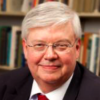
Mark R. Talbot
Professor
Team Members

Mark R. Talbot
ProfessorMark R. Talbot is associate professor of philosophy at Wheaton College. He received his B.A. at Seattle Pacific College, did graduate studies at Saint Louis University, and received His Ph.D. from University of Pennsylvania. His areas of academic expertise include philosophical theology, philosophical psychology, the epistemologies of the early modern philosophers, and the works of David Hume, St. Augustine, and Jonathan Edwards. His books include Suffering and the Sovereignty of God, Personal Identity in Theological Perspective, and The Indispensability of the Trinity, Modern Reformation.



